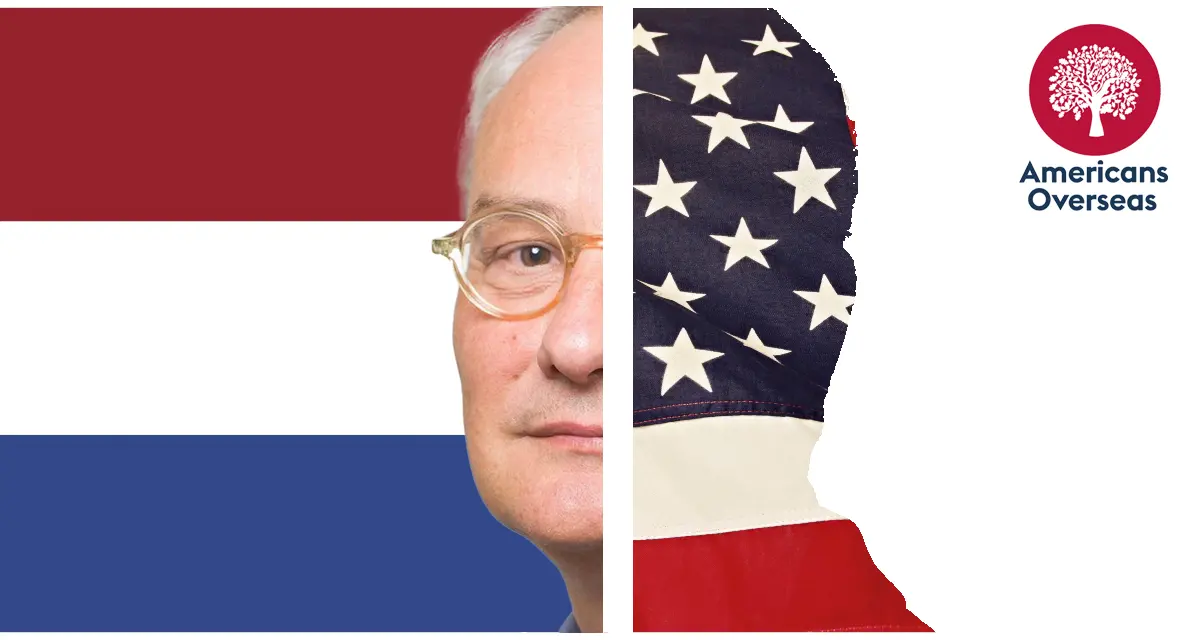
International Investment: Dutch banks freezing accounts Dutch Americans

Dutch banks have started freezing the accounts of dozens of ‘accidental’ Americans in the Netherlands because they have failed to provide them with their US tax information numbers (TINs), a requirement under FATCA.
Banks freezing accounts Dutch Americans under FATCA
According to local news outlet Reporter Radio, the accounts have been suspended in an attempt for the banks to get in touch with those customers and collect the required information under FATCA rules.
FATCA was passed in 2010 and forces banks wanting to operate in the US to report any assets held by American citizens overseas. While the measure is aimed at tax avoidance, it has created problems for many American expats and dual nationals who have been rejected by retail banks seeking to avoid hassle and risk.
“It’s blackmail with your own money” Daan Durlacher, founder of the Netherlands-based Americans Overseas, told NOS that he has been receiving daily complaints from Dutch Americans in the past month and a half. “From customers from different banks, but especially from Rabobank,” he said.
He finds it outrageous that a bank would block a person’s account to reach out.” It’s blackmail with your own money,” he added.
The issue for Dutch Americans is the Foreign Account Tax Compliance Act (FATCA) – a law intended to combat tax fraud in the United States that obliges banks to transfer data of Americans abroad to the US tax authorities.
But passing on the SSN – the American citizen service number – can be a problem, especially for “accidental Americans – people who were born to an American parent and have US nationality even though they never lived there. “Many accidental Americans don’t have such a number at all.”
Injustice for Dutch Americans
An approximate 1,000 ‘accidental’ Americans live in the Netherlands.
Ronald Ariës is one of those ‘accidental’ Americans and he has filed a lawsuit against his bank. “I can’t stand injustice and that’s exactly what this is. I didn’t live there, I didn’t study, I didn’t work, I’ve always paid taxes in the Netherlands,” he said.
Ariës has also called on the Dutch Ministry of Finance to tell the US IRS that ‘accidental’ Americans in the Netherlands should be left alone.
The Dutch government had previously urged banks to be accommodating towards American nationals. Junior finance minister Menno Snel said that “any American sanctions against financial institutions will only be considered in the summer of 2023” which gives time for matters to be sorted, and thus a case for banks to be more accommodating to their accidental American clients.
Americans Overseas helps Dutch Americans
We, the founders of Americans Overseas, were born in the Netherlands and obtained our American nationality through our (American) mother.
When we heard about the US tax system for the first time around 2013, we were in total disbelief (it can’t be true!), anger (how can they do this?), fear (am I going to get fined or pick up other problems?), and panic (what should I do?). It is (unfortunately) true that there is an additional American tax levy. But there’s no information from the local government, and when approached, the consulate referred us to the IRS, and the IRS was impenetrable.
That’s why we started this initiative to help people from all over the world by providing proper information about the US tax system to avoid unnecessary panic and offering help free of obligation and free of charge. If needed, we have a network of affordable professionals (accountants) who can help you with your tax obligations.
If you have more questions about Dutch Americans and FATCA, missing tax ID numbers, or US income tax you can contact us at Americans Overseas.
Contact us for more information
Source: International Investment
Frequently asked questions
Understanding the US tax system, the obligations, and all the additional terms can be difficult. Especially if one lives outside of America. Is your question not answered? Contact us.
-
Who is required to file taxes in the US?
U.S. citizens and resident aliens who live abroad are generally required to file a federal income tax return and pay taxes on their worldwide income.
Read more... about Who is required to file taxes in the US? -
Do US citizens living abroad still have to file taxes in the US?
Yes, US citizens are required to file taxes on their worldwide income, regardless of where they are living.
Read more... about Do US citizens living abroad still have to file taxes in the US? -
How can I cash my US check?
Received an American check? You can cash your check in the following ways: cash the check at your own bank, transfer to another person (endorsement), cash checks using an online service or cash the check by another bank.
Read more... about How can I cash my US check? -
Are there any special tax forms required for US citizens living abroad?
US citizens living abroad may be required to file Form 2555 and/or Form 1116 to claim the foreign-earned income exclusion.
Read more... about Are there any special tax forms required for US citizens living abroad? -
What is FBAR filing?
FBAR (Foreign Bank Account Report) filing is the requirement for certain U.S. individuals and entities to report their foreign financial accounts to the Financial Crimes Enforcement Network (FinCEN) of the U.S. Department of Treasury. The FBAR filing requirement applies to U.S. persons who have a financial interest in, or signature authority over, one or more foreign financial accounts if the aggregate value of those accounts exceeds $10,000 at any time during the calendar year.
Read more... about What is FBAR filing?





